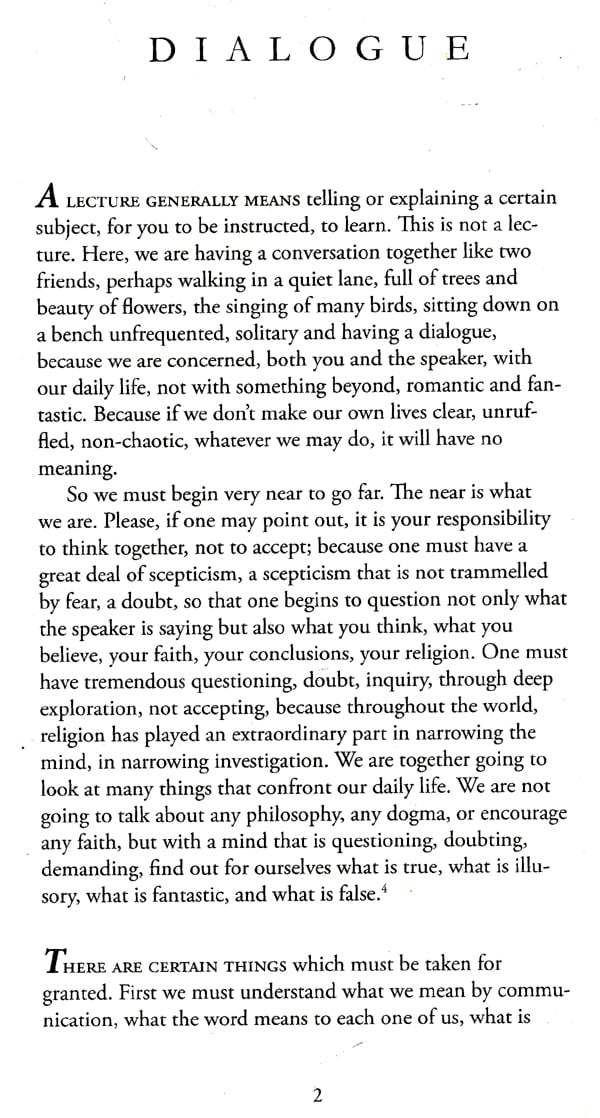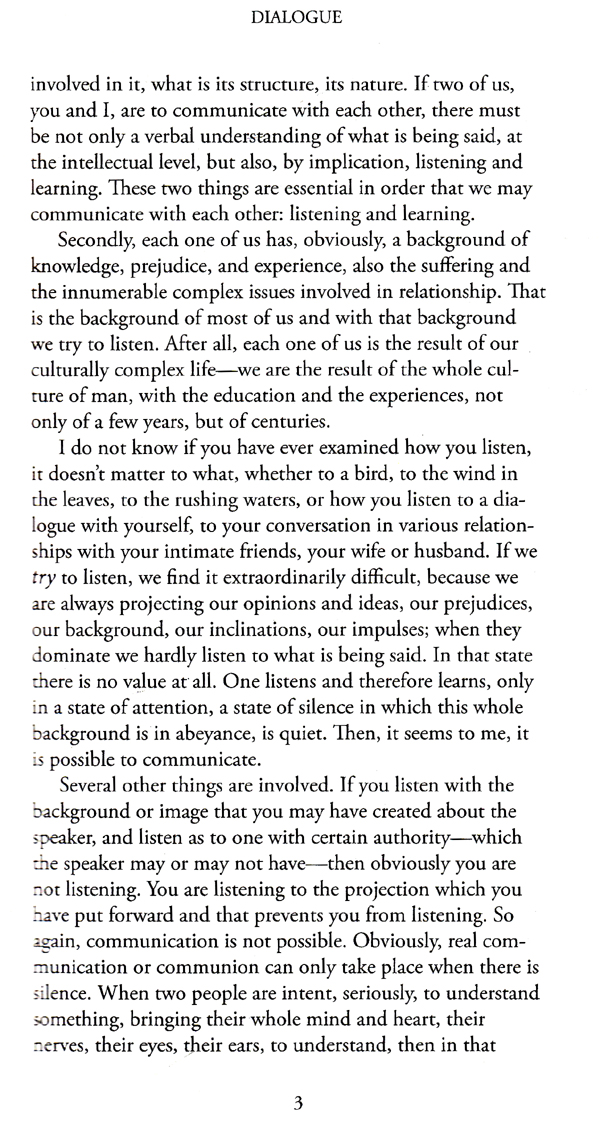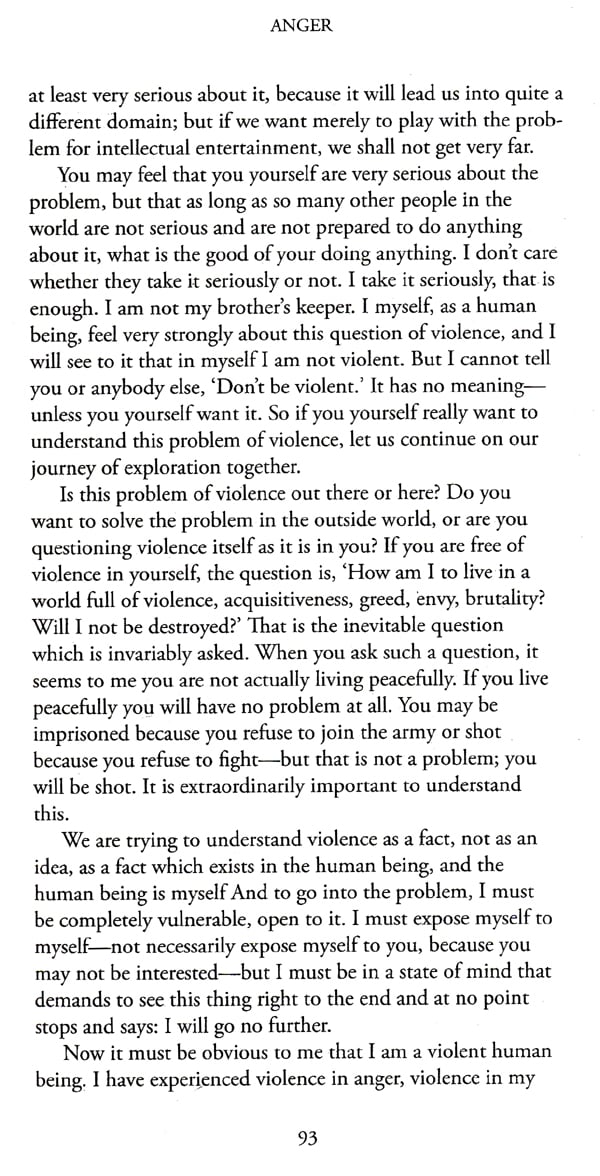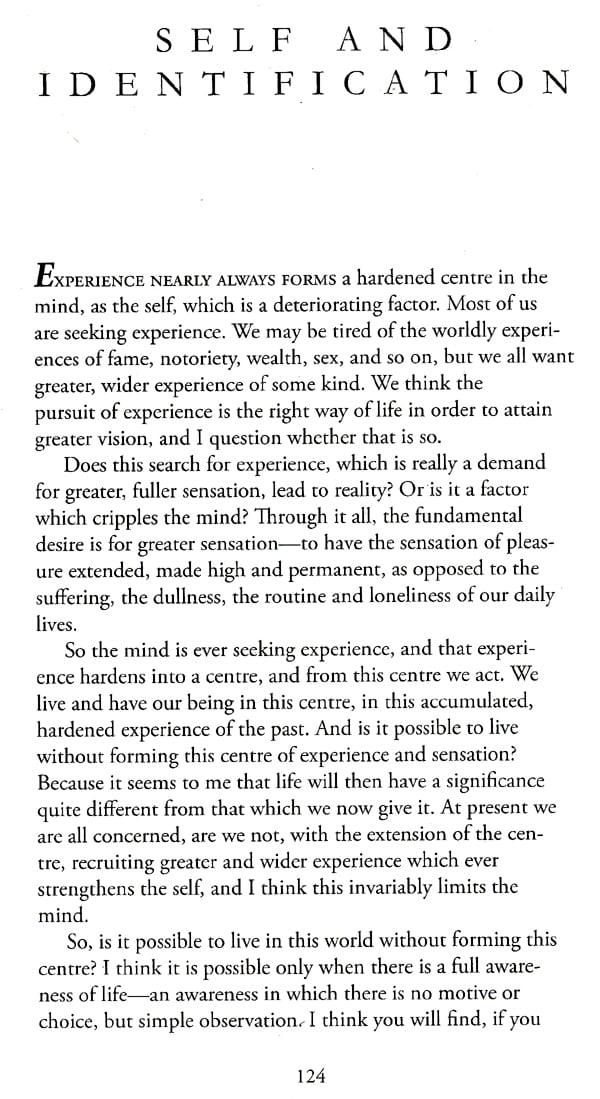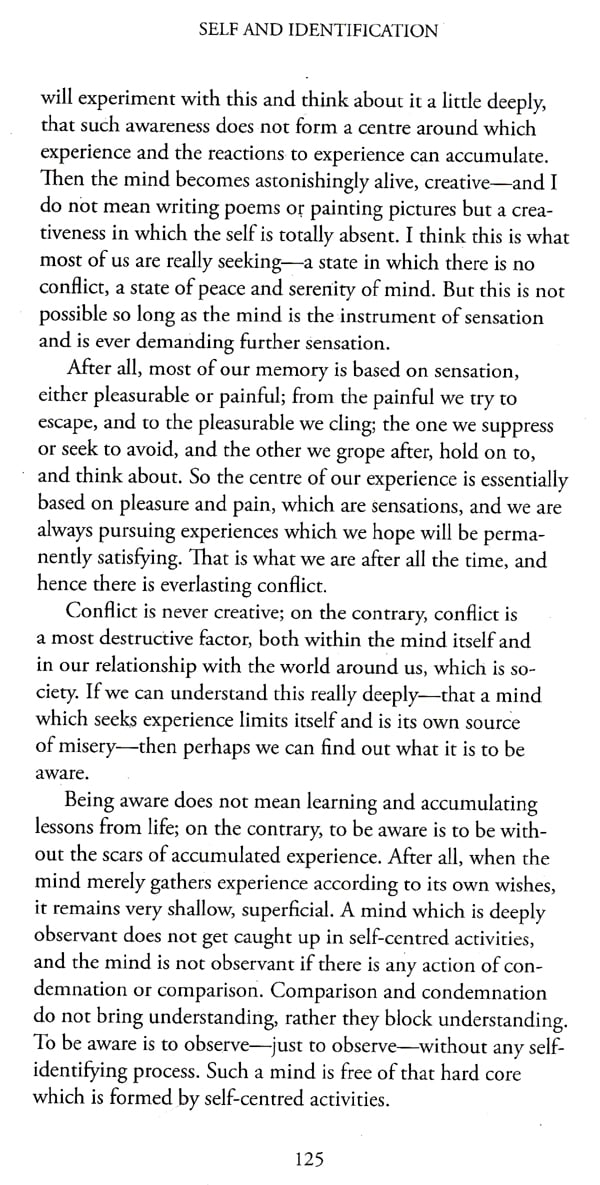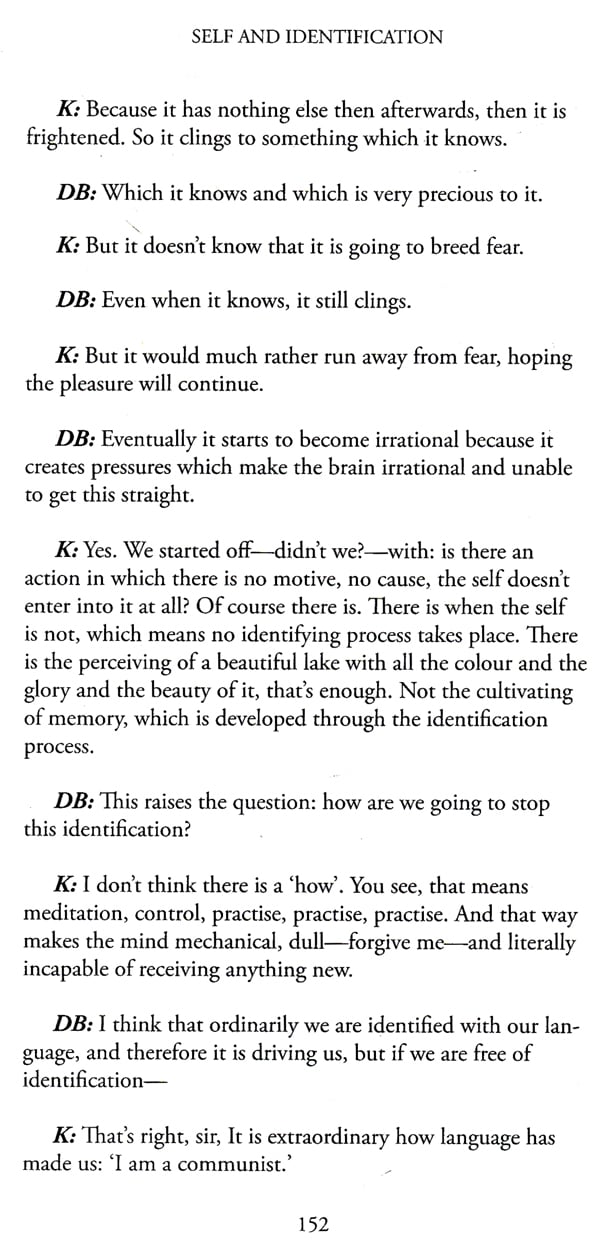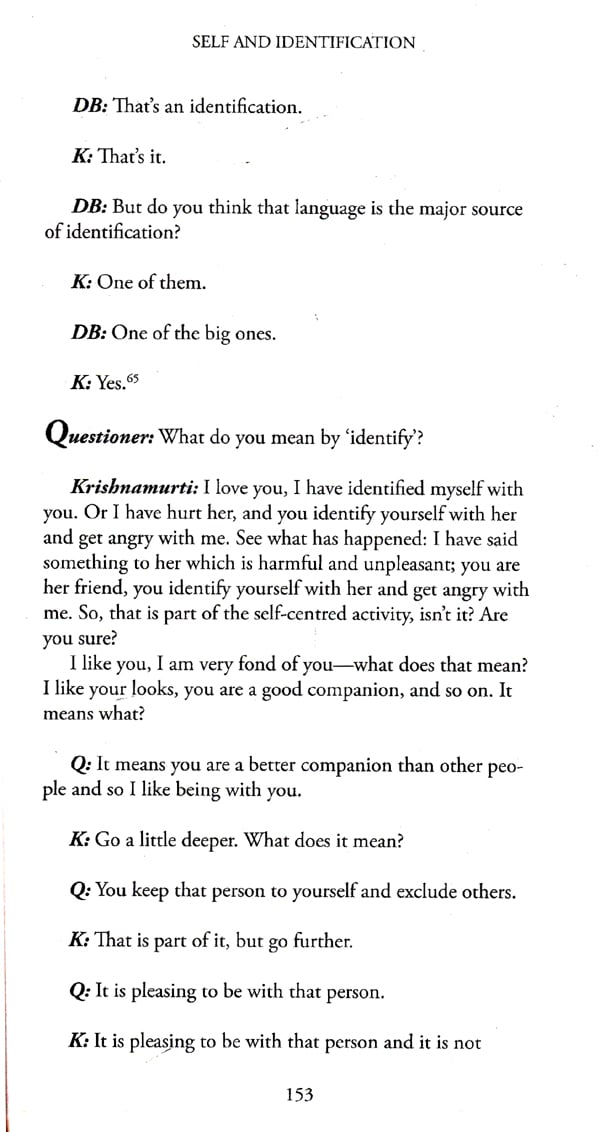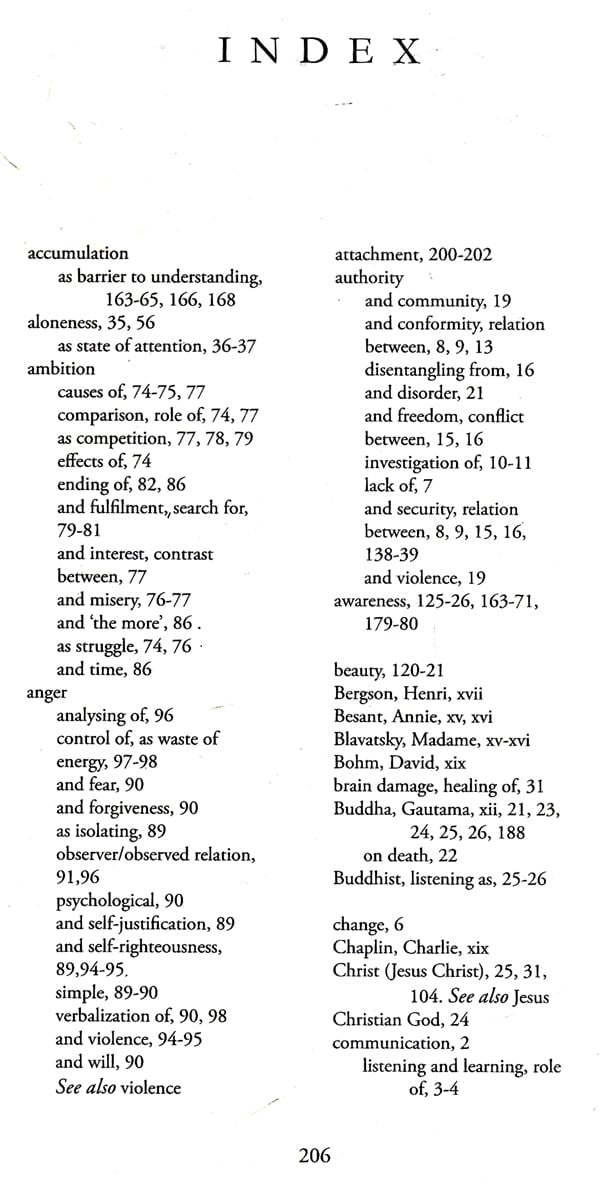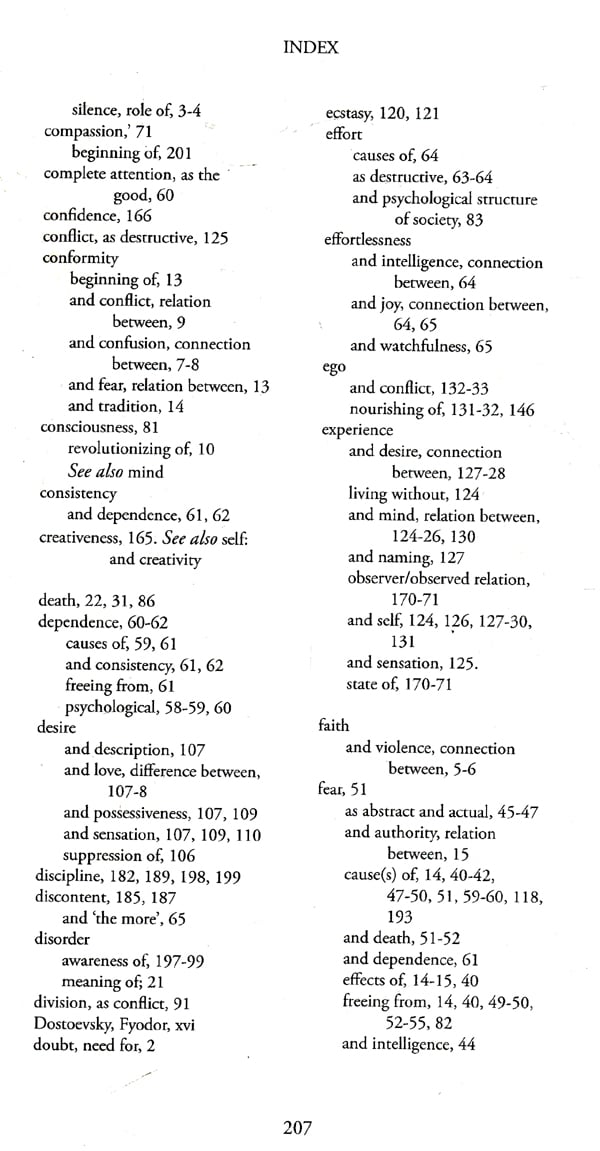
Reflections on the Self
Book Specification
| Item Code: | NAY449 |
| Author: | J. Krishnamurti |
| Publisher: | Krishnamuriti Foundation India |
| Language: | English |
| Edition: | 2019 |
| ISBN: | 9788187326823 |
| Pages: | 232 |
| Cover: | PAPERBACK |
| Other Details | 8.50 X 5.50 inch |
| Weight | 270 gm |
Book Description
REFLECTIONS ON THE SELF, edited by Raymond Martin, former professor of philosophy at the University of Maryland, contains excerpts from J. Krishnamurti's writings and talks on the nature of human emotions, the self and self-identification, inquiry, and the pure observation which frees human beings psychologically. Though it was conceived of primarily as a text for university students, the common reader will find the selections speaking directly to the existential issues he is confronted with in his everyday life. As the editor says in his Introduction, `...Much of what Krishnamurti said is deeply relevant to philosophy. It relevance is not that he had theories to propose or critiques of extant theories. Krishnamurti's focus is on insights. His talent as a teacher is that he facilitates them.'
Those who wish to engage creatively with their inner life of conflicting thoughts and emotions, and their quest for freedom and happiness, will find in this book a rich resource.
J. Krishnamurti (1895 -1986) is regarded as one of the greatest philosophers and religious teachers of all time. For more than sixty years he travelled the world over, giving talks and holding dialogues, not as a guru but as a friend. His teachings are not based on book knowledge and theories, and therefore they communicate directly to anyone seeking answers to the present world crisis as well as to the eternal problems of human existence.
IN THE SPRING OF 1993 the Krishnamurti Foundation of America asked me to edit a volume of J. Krishnamurti's talks and writings. Their idea was that there should be an anthology that would be particularly interesting to academic philosophers and students of philosophy. The request reminded me of how difficult it had been twenty years earlier for me to understand what Krishnamurti was saying and its relevance to my work as a philosopher. Although I had some misgivings I agreed.
My misgivings were due, first, to the fact that as things stand, Krishnamurti's thought is quite removed from academic philosophy, particularly in the analytic tradition. There is a simple reason why this should be so: Krishnamurti wasn't interested in presenting theories; and theories are what academic philosophy is all about. Second, it seemed-and still seems-to me that my having been an analytic philosopher had actually made it more difficult for me to understand Krishnamurti. The reasons for this are complex and not entirely clear to me even now. I think the heart of the difficulty was that I couldn't understand what Krishnamurti was saying unless what he was saying was 'clear' and it wasn't going to be 'clear' until I had processed it in the way I had been trained as an analytic philosopher to process any view I was considering. As it happens, it is hard to process what Krishnamurti is saying in that way. (The problem I was having is analogous, I think, to the problem the Buddhist scholars were having in the As a Human Being' section below.)
In the end what enabled me to overcome my misgivings about editing this volume was the realization that I'd been moved and instructed by Krishnamurti's thoughts, and in ways that connect directly with my academic interests in philosophy, particularly in the topics of self and personal identity! For instance, Krishnamurti's observations on ident-fication and on the observer/observed distinction are, I think, importantly relevant to post-Parfitian concerns about what matters in survival. And, in my opinion, quite apart from its relevance to academic philosophy, what Krishnamurti has to say is important.
**Contents and Sample Pages**
